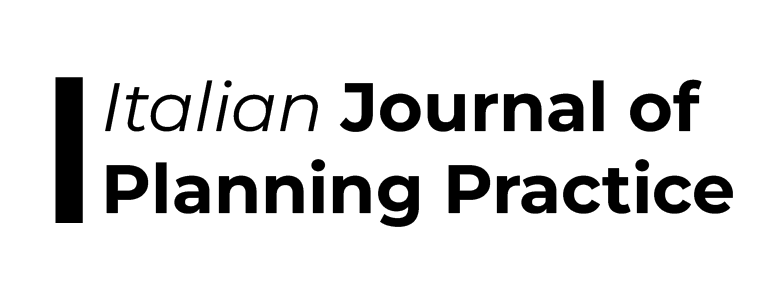Publication Ethics and Publication Malpractice Statement
IJPP adheres and conforms to the COPE (Committee on Publication Ethics) Ethical guidelines.
The editors of the Italian Journal of Planning Practice (IJPP) are responsible, with the help of anonymous referees, for deciding which of the articles submitted to the journal should be published. In evaluating the submitted works, the editors should limit themselves only to the intellectual content. The editors should not be influenced by matters such as race, gender, sexual orientation, religious belief, ethnic origin, citizenship, or political philosophy of the authors. The editors can choose to ignore any material that breaks legal requirements regarding label, copyright infringement and plagiarism. The editors ensure the confidentiality of the submitted works until they are published. In case the editors decide not to publish a material, the manuscript should not be used for other purposes without the express written consent of the author.
The referees of IJPP assist the editors in taking the decision of publishing a submitted manuscript. IJPP operates a peer-review based on a double blind process where authors and reviewers are unknown to each other. By formulating suggestions to the authors, the referees contribute to the improvement of submitted works. In order to achieve these goals, the referees are to evaluate objectively the submitted works and to clearly present their views regarding the manuscript. The referees are bound to treat the manuscript received for peer reviewing as confidential. Since IJPP employs the double blind peer review system, the communication regarding the submitted manuscript would be made exclusively between the referees and the editors of IJPP.
Download IJPP Review Form
The authors submitting articles to IJPP should draft their works in accordance with IJPP Author Guidelines (See Author Guidelines in Submit your Research and download the IJPP Article Template). The authors should ensure that they have written entirely original works. When the authors use other materials, sources should be appropriately cited. Any attempt of plagiarism should be followed by the rejection of the submitted manuscript. Authors should not submit the same work or describe essentially the same research in more than one journal. Submitting the same manuscript to more than one journal concurrently constitutes unethical publishing behaviour. When an author discovers a significant error or inaccuracy in his/her own published work, it is the author’s obligation to promptly notify the journal editor or publisher and cooperate with the editor in correcting the material.
Download the full Code of Ethics
